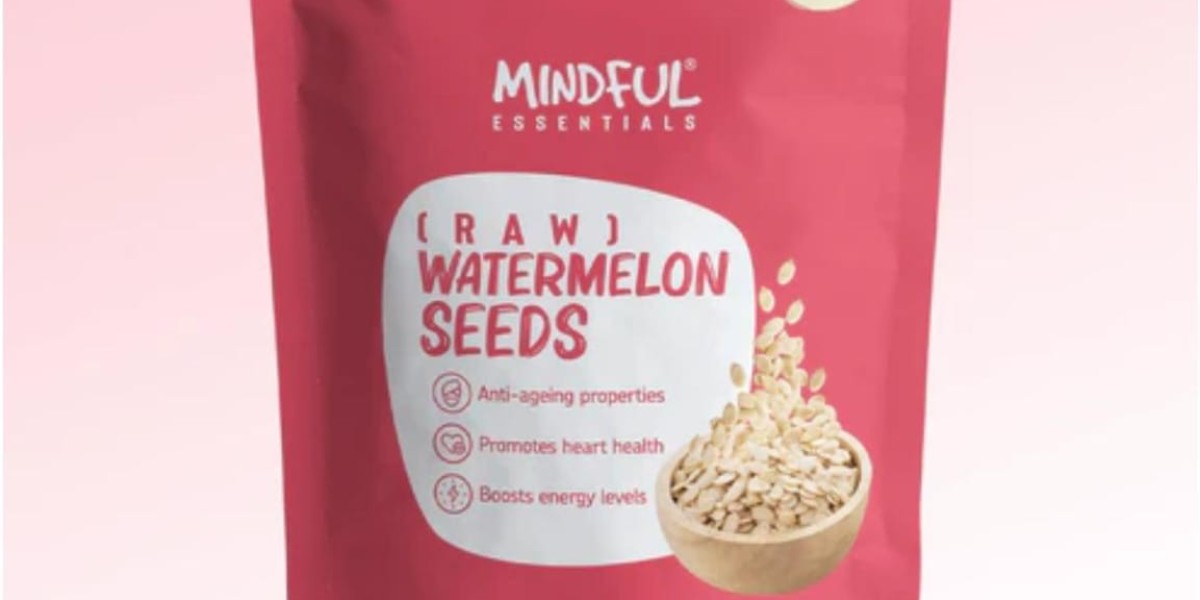Watermelon is a favorite fruit of many, especially during the hot summer months. It’s refreshing, hydrating, and delicious. But did you know that the seeds inside your watermelon are just as nutritious and beneficial as the fruit itself? Often discarded, watermelon seeds are packed with essential nutrients and health benefits. Instead of tossing them away, you can turn them into a healthy snack, incorporate them into meals, or even use them in smoothies. Let’s explore the health benefits of watermelon seeds and why you should consider adding them to your diet.
What Are Watermelon Seeds?
Watermelon seeds are the small, edible seeds found inside the juicy flesh of a watermelon. These seeds are typically black or white, depending on the variety of watermelon. While most people discard them, watermelon seeds are packed with nutrients like protein, healthy fats, vitamins, and minerals. They can be eaten raw, roasted, or ground into powder, making them a versatile addition to a variety of dishes.
Health Benefits of Watermelon Seeds
1. Rich in Protein
Watermelon seeds are an excellent source of plant-based protein, which is essential for muscle growth, tissue repair, and overall bodily function. Just a small handful of watermelon seeds can provide a significant amount of protein, making them a great addition to vegetarian and vegan diets. Protein is also important for:
Supporting immune function: Protein helps in the formation of antibodies that protect the body against illness and infection.
Maintaining healthy skin and hair: Protein plays a key role in the regeneration of cells, including those that make up your skin and hair.
Boosting metabolism: Protein can help increase your metabolism, leading to more efficient calorie burning and weight management.
2. High in Healthy Fats
Watermelon seeds are rich in healthy fats, particularly unsaturated fats, which are essential for heart health. These healthy fats help:
Improve cholesterol levels: Unsaturated fats help reduce bad cholesterol (LDL) while increasing good cholesterol (HDL), thus supporting cardiovascular health.
Promote brain health: Healthy fats are essential for brain function and development. They improve cognitive function and may reduce the risk of age-related cognitive decline.
Support skin health: The fats in watermelon seeds help maintain skin hydration and elasticity, contributing to a glowing, healthy complexion.
3. Packed with Magnesium
Magnesium is an important mineral found in watermelon seeds. Magnesium is involved in over 300 enzymatic processes in the body and is crucial for maintaining overall health. Some of its key benefits include:
Supporting bone health: Magnesium helps regulate calcium levels in the bones, promoting strong bones and preventing osteoporosis.
Muscle function: Magnesium is vital for muscle contraction and relaxation, preventing cramps and muscle spasms.
Promoting heart health: Magnesium helps regulate blood pressure and supports a healthy heart rhythm.
Including watermelon seeds in your diet can help ensure that you get an adequate amount of magnesium to maintain these bodily functions.
4. Good Source of Zinc
Watermelon seeds are also rich in zinc, an essential mineral that plays a vital role in numerous bodily functions, including:
Immune support: Zinc is important for maintaining a healthy immune system and helps the body fight off infections.
Wound healing: Zinc accelerates the healing process of wounds and injuries by promoting cell growth and repair.
Skin health: Zinc is crucial for maintaining healthy skin, preventing acne, and aiding in the treatment of skin conditions like eczema and psoriasis.
5. Supports Healthy Digestion
Watermelon seeds are a good source of fiber, which is essential for digestive health. The fiber content in watermelon seeds helps:
Promote regular bowel movements: Fiber adds bulk to stool, preventing constipation and ensuring smooth digestion.
Feed healthy gut bacteria: Fiber acts as a prebiotic, feeding the beneficial bacteria in your gut and supporting a healthy microbiome.
Control blood sugar levels: Fiber helps regulate the absorption of sugar in the bloodstream, preventing blood sugar spikes after meals.
6. Rich in Antioxidants
Watermelon seeds are packed with antioxidants such as phenolic compounds, flavonoids, and vitamin E. Antioxidants play a crucial role in:
Neutralizing free radicals: Free radicals are unstable molecules that can cause oxidative stress, leading to cellular damage and inflammation. Antioxidants in watermelon seeds help neutralize these harmful molecules, protecting the body from chronic diseases.
Promoting healthy skin: The antioxidants in watermelon seeds help protect the skin from sun damage, pollution, and aging. Vitamin E, in particular, helps keep the skin youthful and vibrant.
Supporting heart health: Antioxidants reduce inflammation and oxidative stress, both of which are linked to heart disease.
7. Helps with Hydration
Watermelon seeds, just like the flesh of the fruit, have hydrating properties. They contain several electrolytes, including potassium, which are essential for maintaining proper fluid balance in the body. This makes watermelon seeds a great snack to help replenish electrolytes after exercise and prevent dehydration.
How to Enjoy Watermelon Seeds
Watermelon seeds are versatile and can be consumed in various ways. Here are some ideas for incorporating watermelon seeds into your diet:
Roast them: Roasting watermelon seeds enhances their flavor and texture. Simply toss them with a bit of olive oil and seasoning, then bake them in the oven for 10-15 minutes at 350°F (175°C) until crispy.
Add to smoothies: Ground or whole watermelon seeds can be added to your smoothies for an extra boost of protein and healthy fats.
Sprinkle on salads: Toasted watermelon seeds make a great addition to salads, providing a crunchy texture and nutritional benefits.
Use in baking: Incorporate watermelon seeds into your muffins, breads, or granola bars for a nutritious twist.
Make seed butter: Blend watermelon seeds into a creamy seed butter, similar to peanut butter, and spread it on toast or use it as a dip.
Conclusion
Watermelon seeds are much more than just the crunchy bits you discard. Packed with protein, healthy fats, magnesium, zinc, and antioxidants, these tiny seeds offer a wide range of health benefits. From supporting digestion and heart health to improving skin and immune function, watermelon seeds are a nutrient-dense superfood that deserves to be included in your diet. Next time you enjoy a watermelon, don’t throw away the seeds—roast them, grind them, or use them in your cooking and snacks to harness all the incredible benefits they provide.



